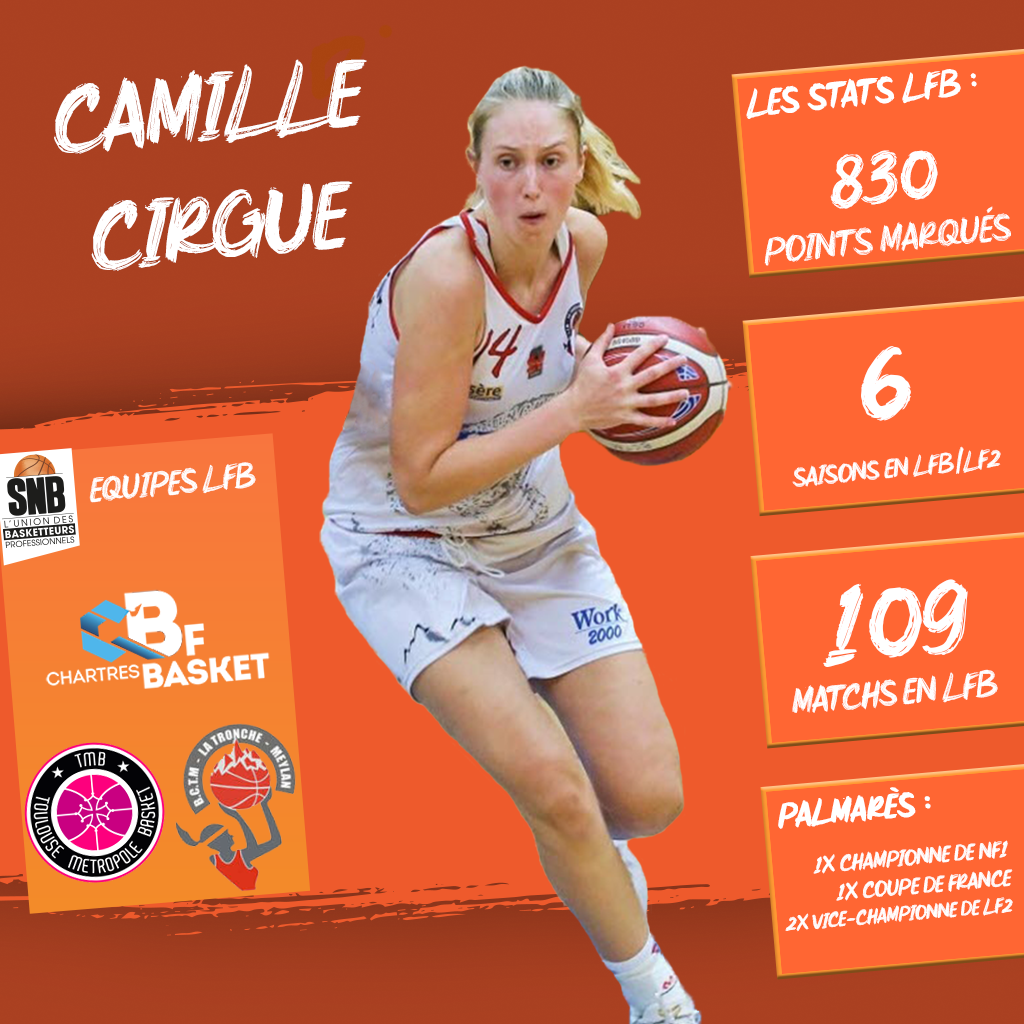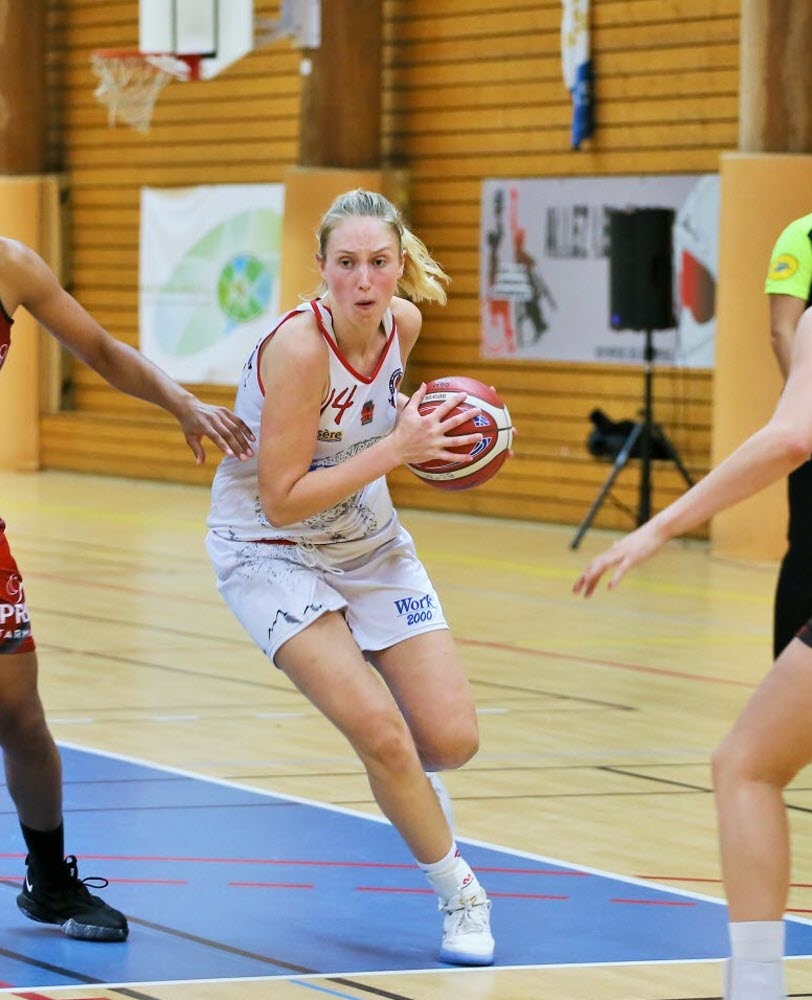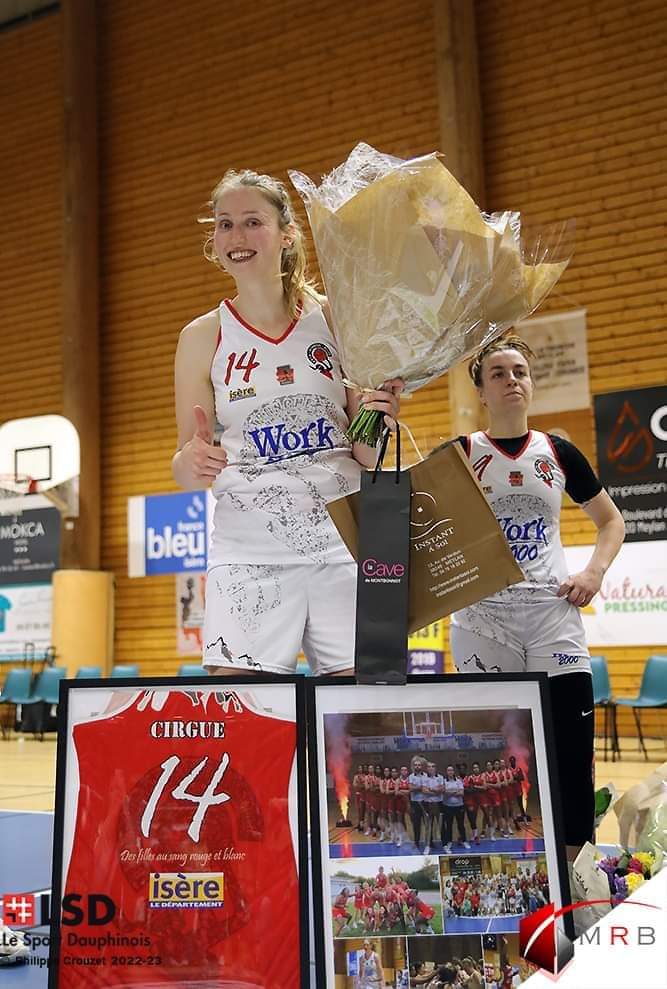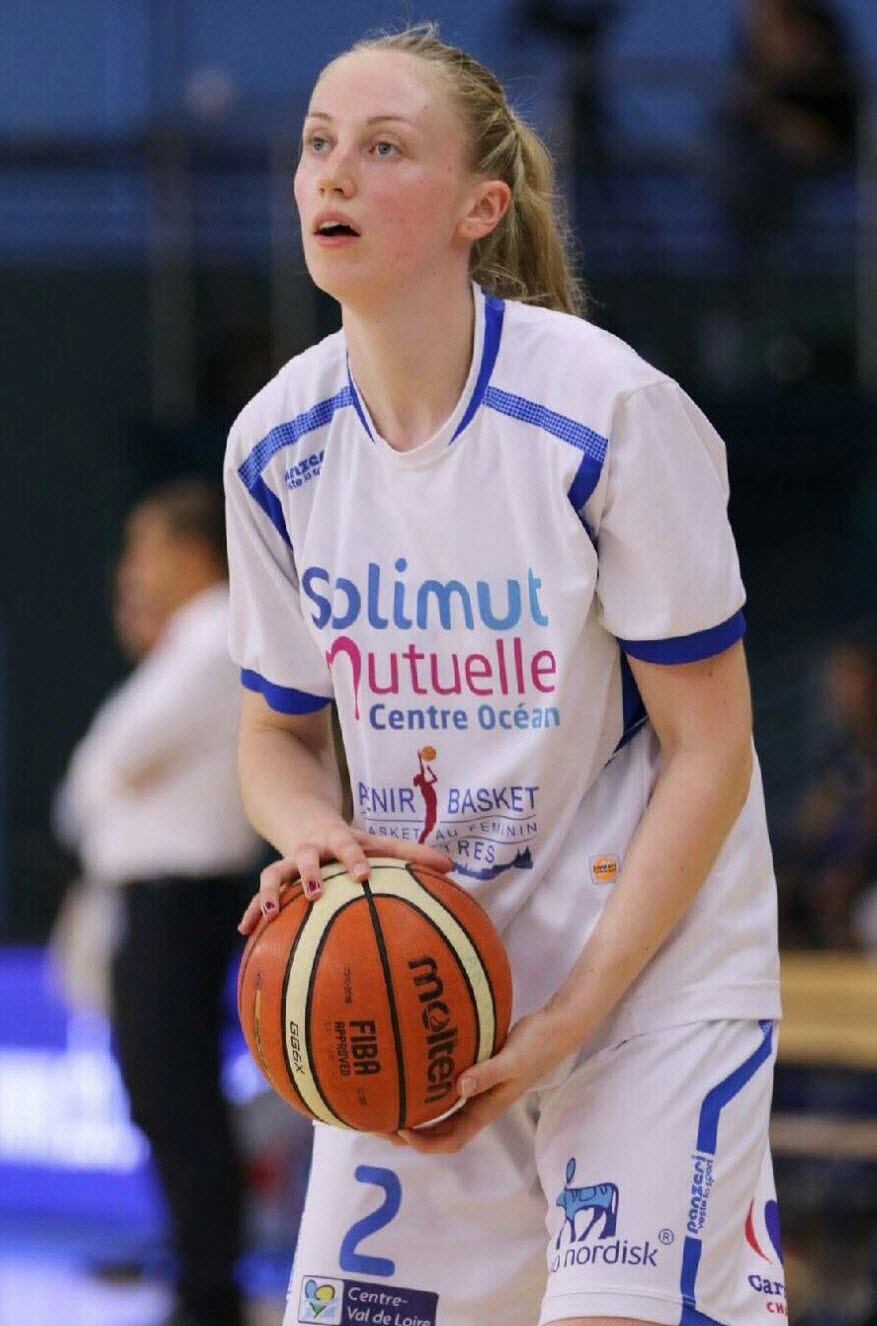At the end of the 2023 season, Camille Cirgue, who previously played for LF2 club La Tronche-Meylan (BCTM), has announced that she will be ending her career at the age of 26.
To mark the occasion, she agreed to take some time out to explain her choice and tell us about her future projects.
Hi Camille!
How are you? You announced your retirement from sport at the end of last season, even though you could have played for a few more years. Was it a decision you’d already made beforehand?
Hi Arthur!
Absolutely, I made my decision at the start of the season and told my president. It had been on my mind for some time.
The balance between pleasure and constraint was leaning more to one side than the other, and that was making it harder and harder to find the motivation to train and travel. The desire to realize myself as something other than a basketball player was also very present, which made my decision easier.
To come back to your first question, I feel great (laughs). I don’t feel too guilty about not having to run, go to the gym or simply train. I’ll be honest, it feels really good to be resting.
Has it been a different season for you? In your relationship with the team, your way of playing?
There were certain moments during the year when I realized that this was the last time I was going to do all this. Some of my team-mates were in the know. So it was nice to be able to share it with them. I think it allowed me to take the situation a little more lightly, enjoy it and have a lot of fun.
It was even stronger than in other seasons. The last matches also had a very special flavour, like the last match at La Tronche or at Reims, where my family made the trip even though they live near Toulouse… It was pretty crazy!
They were emotional final moments, but I think the fact that I was in agreement with my decision allowed me to be serene.
Did preparing for your post-career career help you?
You were already working alongside your sporting career. Can you tell us a little more about that?
When I left the Insep, I was a bit confused about what I wanted to do.
So I decided to do a preparatory course in physiotherapy. I had also applied to go into medicine with my SHN status, but I wasn’t accepted.
This allowed me to ask myself a lot of questions and also to start a skills assessment.
The main thing that came out of it was my interest in the social field, which I didn’t know anything about personally.
So I decided to put my faith in the assessment and embark on a three-year training course to become a social worker.
My career as a basketball player was structured around clubs that allowed me to carry out my training at the same time as my sporting career, which I was able to do for 3 years.
Then one of the teachers I had in Grenoble hired me. At first, it was only for replacements, but in the end it was extended.
And how many years have you been working as a social worker?
Almost 5!
I imagine you must feel confident in your job now. And is it something you’d like to continue?
Definitely! It’s a job in which you share a lot with sport, sharing, solidarity and taking care of others.
So I’m continuing in a more sustained way, since up until now I’ve been working part-time and now I’m going to work full-time.
How did you manage this career move? Was it immediately accepted by your club and teammates? Did they have any doubts?
Honestly, it was very simple. I was lucky enough to have a manager who released me early when I needed to train, or who managed to give me days off when necessary.
I’ve never missed a basketball game because of my job. So there were a few delays (laughs) because there are always unforeseen circumstances, but everything always went well.
The club was also a great facilitator because I never trained in the mornings, so I had that kind of flexibility.
What’s more, the coach and the president quickly understood that this project was an integral part of my equilibrium. My performances weren’t any worse if I trained less.
I’m aware that doing nothing but basketball tends to suffocate me, being always with the same people, always in the same bubble, it’s very special.
My job as a social worker allows me to meet new people and, above all, to put my feet back on the ground, because it’s very anchored in reality.
I’m convinced that having another social circle and other goals has definitely helped me to perform better in my basketball.
It’s interesting to be able to gather this type of testimonial to share this compatibility between a sporting career and training, or even the exercise of a new profession.
So you’ve had two part-time jobs over the last five years?
That’s right, social worker and professional basketball player.
That’s impressive! You told us that your profession has helped you in your performance.
Do you feel that playing basketball at a high level has helped you in your approach to both your studies and your work?
Definitely!
Loving a challenge and being efficient are things that have helped me a lot in my hierarchical relationship, so that I’m able to carry out the missions we’re given.
We’re not a basketball team, but we are a team of social workers, and we have to help each other out, because it’s not easy every day!
Taking the initiative, organization and rigor are all values that I’ve also been able to transpose from my sporting activities.
On the other hand, has everything you’ve done as a social worker influenced the way you approach your basketball career? In your relationship with your teammates, for example, or with your staff?
With the staff and my teammates, certainly.
First of all, it’s a profession that requires humility. You realize that some people are in very complicated situations, even wondering how they’re going to eat every day.
I sometimes talk to my team-mates about some of the cases I’m working on, and I think it’s made us realize how lucky we are to make a living from our passion.
It’s also enabled some of us to take a step back and realize that there’s more to life than basketball.
So, these are all things you used to talk about regularly with each other?
Absolutely! We’ve got a team-mate who’s an engineer, and another in medical school, so we talk all the time about our other professional aspects.
I’ve even been able to provide support for some of you who’ve had administrative problems. I work in a precarious financial situation, so I’ve been able to help out with the CAF, taxes and so on.
It was nice to be able to talk about other things! But I also think that the club’s spirit had a lot to do with it.
It’s true that it’s important to point out that La Tronche-Meylan is a new LF2 club.
There’s no doubt about it, it’s a club with less history and it’s new to the division. For the moment, it’s not structured like a professional club. Many of us are studying on the side.
Their choice was to take on players without resorting to major recruitment. It’s also due to the fact that the club’s budget, although improving, is not yet at the level of a professional club.
So, especially in the early days, we had to find ways of making a living.
Have you noticed any major differences with other LF2 clubs in terms of structure and sporting approach, and is this something you’re concerned about?
I think the difference is mainly in terms of taking a step back, especially after a defeat.
On Mondays, you have to go back to school or work, which makes things perhaps easier to accept.
After that, I’m aware that not everyone has the capacity to carry out this kind of project.
It’s very interesting because, in LF2, despite having a team with atypical profiles, most of whom combine basketball and work/studies, you finish 5th in the championship and play in the play-offs…
Last year, we were even runners-up!
And it’s true! Which just goes to show that running an extra-basketball project is not at all detrimental to the quest for collective performance.
I really think so. It’s all a question of organization and rhythm. Of course, you have to get up earlier, you have to be at work on Mondays, and you have to pay more attention to your lifestyle.
But really, it is possible, and I have to say that it’s a lot easier to stop your career when you have a job, a boss or a diploma to fall back on.
Hence the importance of thinking about it as early as possible.
Do you have any other plans? I understand you’re going to stay with the club as assistant coach?
Actually, we’re changing coaches. It’s the current assistant who’s going to take over.
So the club wanted someone to be there to look after the players’ side of things, and they were reassured by the idea that it should be me, as I already know the club well.
As far as I’m concerned, it allows me to make a smooth transition. Some of the girls are now friends, and I didn’t want to completely cut myself off from them or from basketball.
So it was a good compromise to move over to the staff side.
It’s also very challenging. When you play basketball, you get into a kind of routine and it’s exciting to take on a new challenge like this. It’s easy when you’re a player to question the staff’s choices, but now that I’m the one who’s going to have to make them, it might not be so easy (Laughs).
I’m really looking forward to it! It’s really interesting to be on the other side of the mirror, thinking about the way you want to play and how you want the team to evolve.
It’s really interesting to be able to have a hand in that and choose the game you want your players to play.
Of course, there’s a certain amount of anxiety involved, as you’re bound to wonder whether the players are going to buy into your project and accept the suggestions you make.
But it’s a real challenge!
And we wish you every success!
That’s the end of this interview, so I’d like to propose one last question, which will be your carte blanche. Is there anything you’d like to talk about?
Is this my moment?
Well, I’d just like to say that it’s possible to have a dual career. You just have to be open to the idea and remove certain barriers, whether on the club side or the player side.
There really are mechanisms in place to enable us to anticipate the end of our careers.
We’re talking more and more about post-sports career depression, and I think it’s a real shame not to be able to transpose everything we’ve acquired throughout our basketball career into another profession.
So today, I want to convey a message of hope by saying that it can be done, that anything is possible.
I think it’s a message that will resonate with a lot of players! And it’s thanks to testimonials like yours that we can continue to raise players’ awareness of this vital issue.
